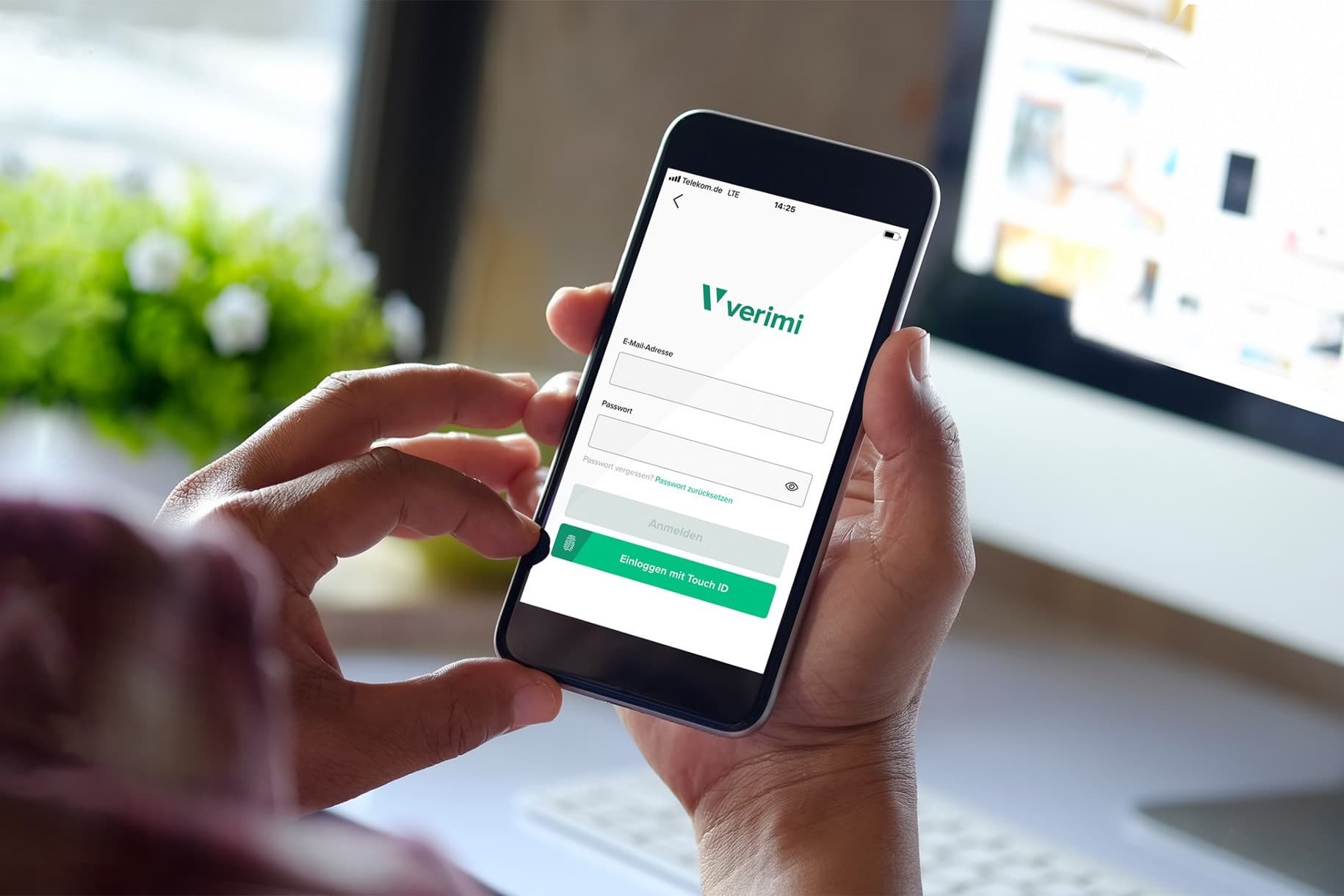The digital identity on the smartphone - that is the goal of Verimi.
To ensure this, standards and technical infrastructures are needed. This is where OPTIMOS comes in, a joint project between Bundesdruckerei, Samsung, T-Systems, Giesecke & Devrient and other well-known companies. As a project funded by the German Federal Ministry for Economic Affairs and Energy (in German: BMWI) OPTIMOS is intended to create an infrastructure on smartphones that will allow data and cryptographic keys to be stored securely on the smartphone.
What is OPTIMOS?
The OPTIMOS 2.0 funding project has set itself the goal of creating an open ecosystem for mobile services worthy of protection. To this end, OPTIMOS provides an infrastructure that makes private keys for encryption or signing as well as digital identity data for many applications securely available via smartphone.
Secure and mobile digital identities could be a central application for OPTIMOS because, on the one hand, they are a prime example of apps with a high need for protection. On the other hand, they allow the digitization of many processes and thus act as a catalyst for other use cases. Once an identity has been securely stored on the smartphone, it simplifies applications that require digital proof of identity.
In this way, the user can use his identity on the smartphone to uniquely identify himself, for example to a car-sharing company, a telecommunications provider or to obtain important documents.
How does Verimi contribute to OPTIMOS?
Verimi is closely involved in the OPTIMOS project as an associated partner. In addition, Bundesdruckerei, Giesecke & Devrient, T-Systems and Samsung are not only consortium partners, but also our shareholders. Verimi will use OPTIMOS as a technical component to further secure the Verimi app.
Already today, Verimi uses up-to-date security technology on the smartphone. The high level of security was confirmed by the German Federal Ministry of the Interior for Construction and Home Affairs (in German: BMI) by approving the Verimi solution at the substantial level in May 2020.
However, like all other app providers today, Verimi remains dependent on the security of the underlying Android or iOS operating system. OPTIMOS enables Verimi to reduce this dependency and thus achieve the highest standards of security for identification, authentication as well as transaction confirmation via the Verimi app.
Verimi "extends" the identity card
Verimi plans to migrate to the OPTIMOS infrastructure as soon as it is available. OPTIMOS will be used technically in two places. First, the private key that users use to log in to the Verimi platform will be managed on the smartphone using OPTIMOS. Second, OPTIMOS will enable users to store their data locally on their smartphone, if they wish, as an alternative to storing their data in the highly secure Verimi cloud.
Currently, the reach of OPTIMOS is still limited: There is a dependency on smartphone manufacturers. Samsung is already on board, but other manufacturers are not yet. In addition, the productization and operation of the infrastructure must now be clarified. Therefore, a significant spread of OPTIMOS-ready devices in the market is not expected until the next few years.
Verimi can generate immediate reach for the online ID card until OPTIMOS-enabled devices have market reach.
Since Verimi can be used by anyone, even with low device requirements (Android from version 7, iOS from 11), we “extend” the ID card. We want to make it easier to use, since:
- Users will no longer need to have their ID card and eID PIN ready every time they use it.
- We offer partner companies simpler interfaces (OpenID Connect) and integration into their processes.
With this in mind, Verimi, on behalf of the German Federal Office for Information Security (BSI), is currently the only partner to have already integrated OPTIMOS into its productive environment and presented it to the German government at the Digital Summit 2019.


